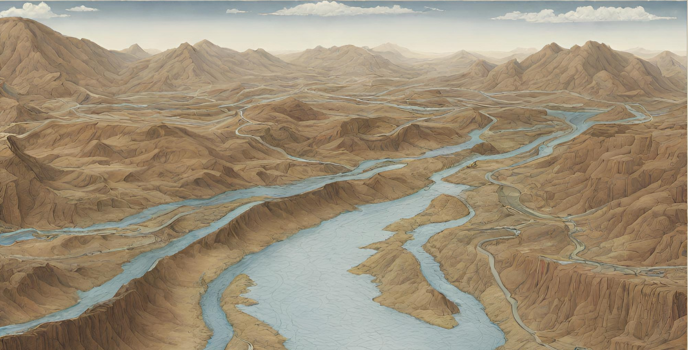“Transboundary Water Security in South Asia: Strategies for Cooperation and Competition” is a Special Issue published by Organisation for Research on China and Asia (ORCA) in collaboration with Nepal Institute for International Cooperation and Engagement (NIICE) as part of the Memorandum of Understanding (MoU) for Research Cooperation between ORCA and NIICE.
The premise of the Special Issue is to study the scale and state of cooperation between countries in South Asia over scarce and limited water resources. This Special Issue, through the contributions by its authors, details and analyses the landscape of transboundary hydro-relations in South Asia, answering pressing questions about hydro-politics in the region. Each chapter in the issue is about hydro-relations between two countries in South Asia, covers China’s role as upper riparian and also addresses the role of climate change and non-traditional security threats facing countries. Authors analyse the drivers of confrontation between states, delineate the logic motivating cooperation in specific sectors and make recommendations for furthering and institutionalising cooperation. The authors identify gaps in policymaking, explore new avenues of cooperation and make recommendations on how to improve governance of water resources in the decades to come.
The sections in the Special Issue have been created to organise the analysis of the Special Issue into three distinct themes. The first section on resource competition and geopolitical interests details the confrontations over water resources in South Asia. The first chapter, by Shreyas Deshmukh studies the tussle between India and Pakistan over the Indus Water Treaty, detailing their changing approaches to the issue of water sharing. The chapter by D. Purushothaman and Thasnim Kalam studies India’s water security issues with respect to the Brahmaputra and China’s role as upper riparian. The paper discusses the politics of India-China in the context of limitations of water and data sharing agreements between the two countries.
The second section of the Special Issue is about navigating complexities of cooperation, with chapters on the sectoral cooperation between states in South Asia. Anuttama Banerji writes on geopolitical factors that have influenced cooperation between India and Bangladesh. She makes the case that functional avenues of cooperation have emerged between the two countries, while larger more contentious issues have remained unresolved. Avinav Singh Khatri writes on the relationship between India and Nepal in the context of cooperation over hydropower resources. He argues that their cooperation faces challenges in the form of policy and regulatory incompatibilities, which governments on both sides are yet to resolve. Nandita Khadgi studies the cooperation between India and Bhutan, to make the case that their cooperation is a successful example of engagement over hydro resources. She details the several challenges that have been overcome and the emerging issues in India-Bhutan hydropower cooperation.
The third section is titled Non-Traditional Security and Governance Challenges, which is focused on climate change and water governance in South-East Asia. The chapter by Ambika Vishwanath and Sanya Saroha is about the complexities of non-traditional security and potential of water conflicts that emanate from climate change. Their chapter outlines the landscape of challenges affecting all countries in South Asia and identifies the threats that state and non-state actors will have to confront in order to limit the possibility of conflict over water resources. The chapter by Dechen Palmo studies the water governance approach by China’s central government and the Yunnan provincial government. The paper analyses China’s governance of rivers, dam construction and explores its implications for South-East Asia.
Together, these chapters explore the landscape of hydro relations in South Asia, analyse the sources of confrontation and potential conflict, detail sectoral cooperation and make recommendations for the future of transboundary water governance.



Author
Rahul Karan Reddy
Rahul Karan Reddy is Senior Research Associate at Organisation for Research on China and Asia (ORCA). He works on domestic Chinese politics and trade, producing data-driven research in the form of reports, dashboards and digital media. He is the author of ‘Islands on the Rocks’, a monograph on the Senkaku/Diaoyu island dispute between China and Japan. He is the creator of the India-China Trade dashboard, the Chinese Provincial Development Indicators dashboard and co-lead for the project ‘Episodes of India-China Exchanges: Modern Bridges and Resonant Connections’. He is co-convenor of ORCA’s annual conference, the Global Conference on New Sinology (GCNS) and co-editor of ORCA’s daily newsletter, Conversations in Chinese Media (CiCM). He was previously a Research Analyst at the Chennai Center for China Studies (C3S), working on China’s foreign policy and domestic politics. His work has been published in The Diplomat, 9 Dash Line, East Asia Forum, ISDP & Tokyo Review, among others. He is also the Director of ORCA Consultancy.